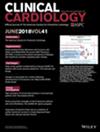Advancements in Artificial Intelligence in Noninvasive Cardiac Imaging: A Comprehensive Review
Abstract
Background
Technological advancements in artificial intelligence (AI) are redefining cardiac imaging by providing advanced tools for analyzing complex health data. AI is increasingly applied across various imaging modalities, including echocardiography, magnetic resonance imaging (MRI), computed tomography (CT), and nuclear imaging, to enhance diagnostic workflows and improve patient outcomes.
Hypothesis
Integrating AI into cardiac imaging enhances image quality, accelerates processing times, and improves diagnostic accuracy, enabling timely and personalized interventions that lead to better health outcomes.
Methods
A comprehensive literature review was conducted to examine the impact of machine learning and deep learning algorithms on diagnostic accuracy, the detection of subtle patterns and anomalies, and key challenges such as data quality, patient safety, and regulatory barriers.
Results
Findings indicate that AI integration in cardiac imaging enhances image quality, reduces processing times, and improves diagnostic precision, contributing to better clinical decision-making. Emerging machine learning techniques demonstrate the ability to identify subtle cardiac abnormalities that traditional methods may overlook. However, significant challenges persist, including data standardization, regulatory compliance, and patient safety concerns.
Conclusions
AI holds transformative potential in cardiac imaging, significantly advancing diagnosis and patient outcomes. Overcoming barriers to implementation will require ongoing collaboration among clinicians, researchers, and regulatory bodies. Further research is essential to ensure the safe, ethical, and effective integration of AI in cardiology, supporting its broader application to improve cardiovascular health.


 求助内容:
求助内容: 应助结果提醒方式:
应助结果提醒方式:


